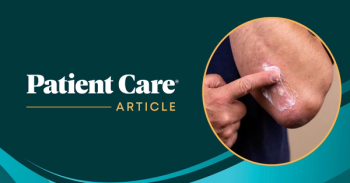
Tinea Versicolor in a High School Wrestler
A 16-year-old high school wrestler developed an acute, pruritic eruption involving both arms and a small portion of the chest.
A 16-year-old high school wrestler developed an acute, pruritic eruption involving both arms and a small portion of the chest. The physical examination showed scattered, round patches in the affected areas. Each spot had scales located at the periphery. The patient's coach, fearing that the student contracted tinea corporis during a wrestling match, immediately sent him to his family physician.
The annular, scaly nature of the lesions as well as concomitant itching strongly suggested the diagnosis of dermatophytosis; consequently, the patient was given a 2-week course of oral ultramicrosize griseofulvin. Unfortunately, the rash failed to respond and even worsened.
Both the coach and the student-athlete's doctor assumed that a round lesion must be ringworm (caused by dermatophytes). In fact, this patient also had tinea versicolor. Griseofulvin does not eliminate the causative organism.
The student could have been treated with topical application of any azole antifungal cream (eg, econazole, oxiconazole, ketoconazole) or by oral administration of ketoconazole (400 mg as a single dose, wait 2 hours and exercise to the point of sweating), itraconazole (200 mg/d for 1 week), or fluconazole (a single 600-mg dose).
Newsletter
Enhance your clinical practice with the Patient Care newsletter, offering the latest evidence-based guidelines, diagnostic insights, and treatment strategies for primary care physicians.

































































































































